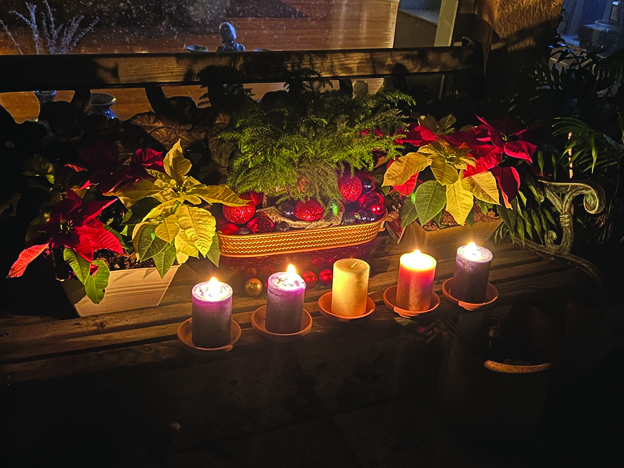
BY HARRY COVERSTON, TIMES GUEST WRITER
Some of you may know that among other hats I wear, I am an Episcopal priest. In liturgical traditions, Christmas is not a single day, it’s a season on the church calendar. The 12 days of Christmas, immortalized by the English Christmas carol of the 18th CE, begin with the end of the Advent season on Christmas Eve and continue until the arrival of the Magi on Epiphany, January 6.
I have to confess to having mixed feelings about Christmas as we observe it in America. On the one hand, the celebration of the arrival of the Christ child comes at the end of the four weeks of watching and waiting that mark Advent, during which the Winter Solstice marks the beginning of a new solar year, the return of light to a darkened world. Our Christmas Eve celebrations will be marked by beautiful hymns that take many of us back to our childhoods. And Christmas Day will find many of us around tables with families of birth and choice. All of that speaks to my soul.
On the other hand, the frantic consumerist shopping that marks the days prior to Christmas, driven by an inescapable marketing which largely utilizes manipulative tactics (“If you really love them, you’ll buy them…..”) leaves me cold. Gift giving is a good thing, I think. Guilt-driven buying is something else.
Then there is the predictable chorus of the voices of those who would politicize this holiday, making it simply one more round of the culture wars, throwing down a gauntlet asserting “Jesus is the reason for the season,” and daring others to challenge them. They thus reveal themselves to be oblivious to the history of this celebration which has always been tied to a solstice which has given birth to celebrations in cultures across time and history. And those who honor the many possible observances of this season, offering the generalized seasonal greeting of “Happy Holidays” out of consideration for others, may well end up being declared the enemy in a supposed “War on Christmas.”
One wonders if the baby Jesus might have second thoughts about coming amidst all of this strife.
But there are two voices that have always spoken to me during this Christmas season that I think are worth revisiting every year. The first comes from a 14th CE German Dominican friar named Meister Eckhart. He would say of Christmas, “What good is it to me for the Creator to give birth to his Son if I do not also give birth to him in my time and culture?” Indeed.
That idea would be developed further by 20th CE Black theologian, Howard Thurman. I believe his understanding of Christmas is worth our consideration in this time of uncertainty and strife. And so I conclude with Thurman’s beautiful poem, “The Mood of Christmas.”
“When the song of the angels is stilled,
when the star in the sky is gone,
when the kings and princes are home,
when the shepherds are back with their flocks,
the work of Christmas begins:
to find the lost,
to heal the broken,
to feed the hungry,
to release the prisoner,
to rebuild the nations,
to bring peace among the people, to make music in the heart.”
Amen, Brother. Merry Christmas to all our readers. May the work of Christmas begin.







